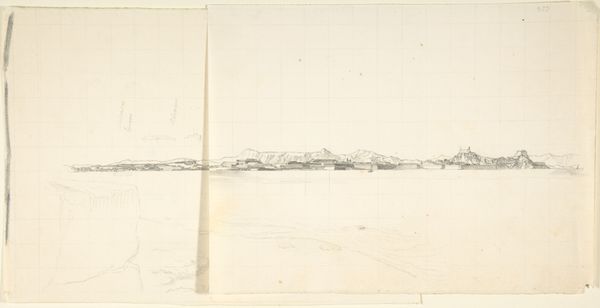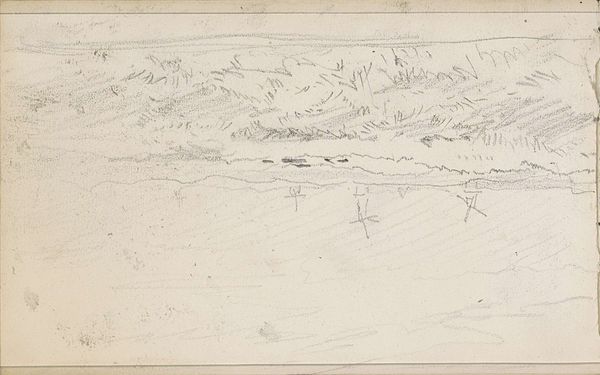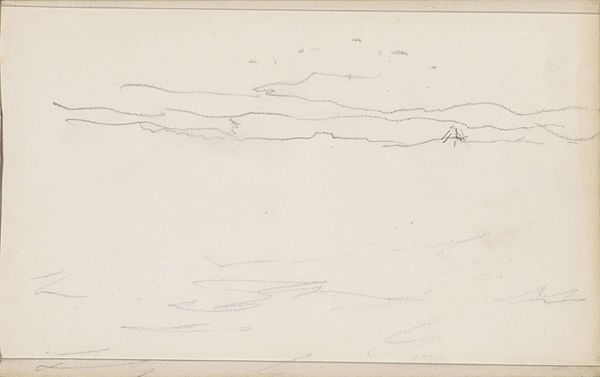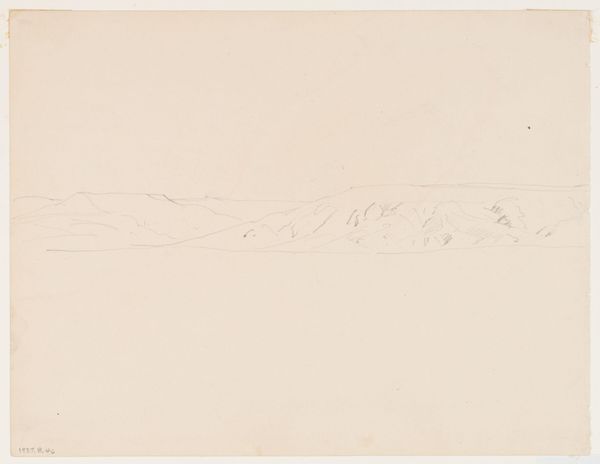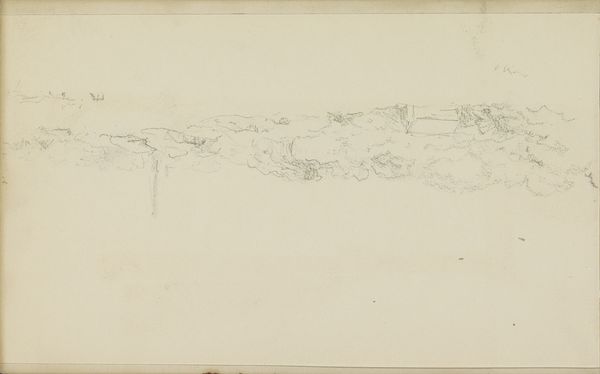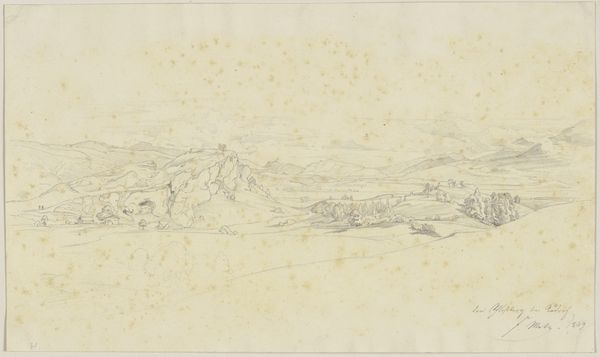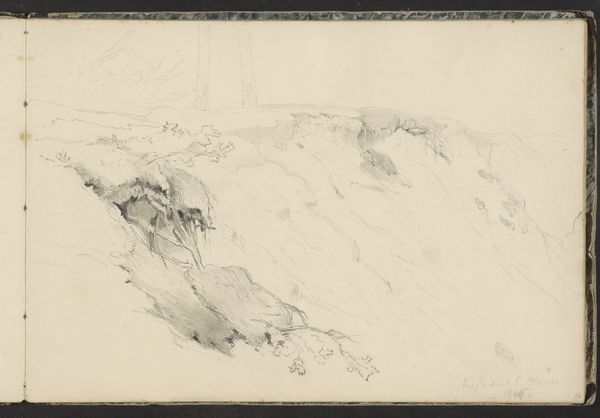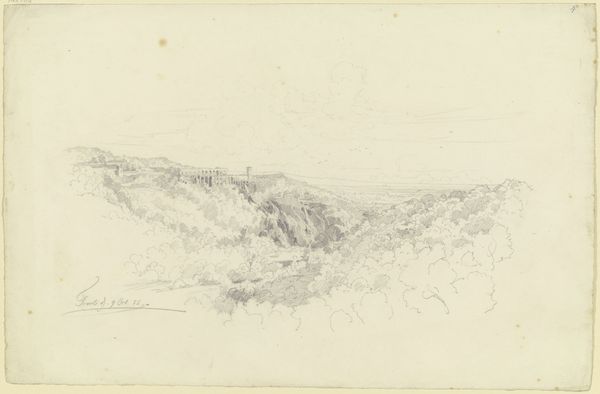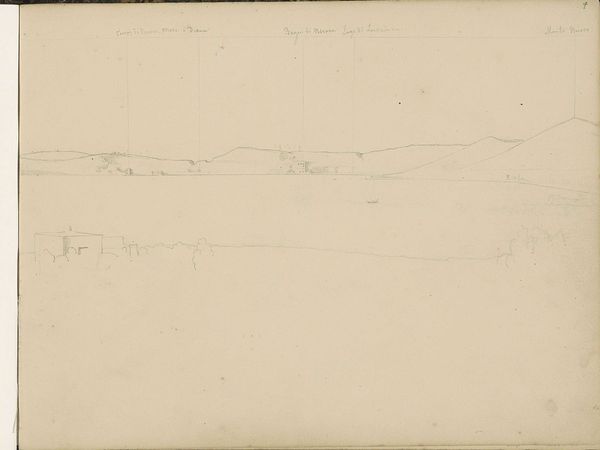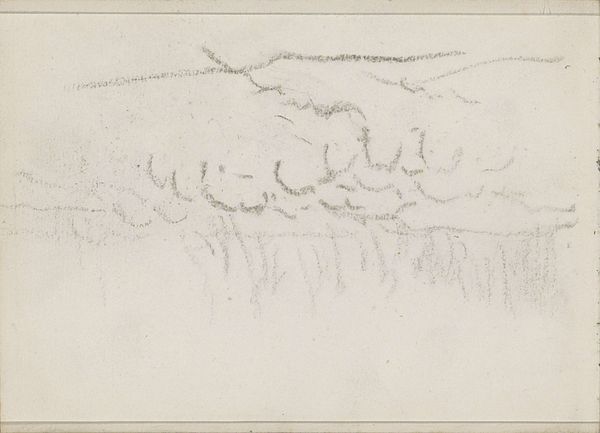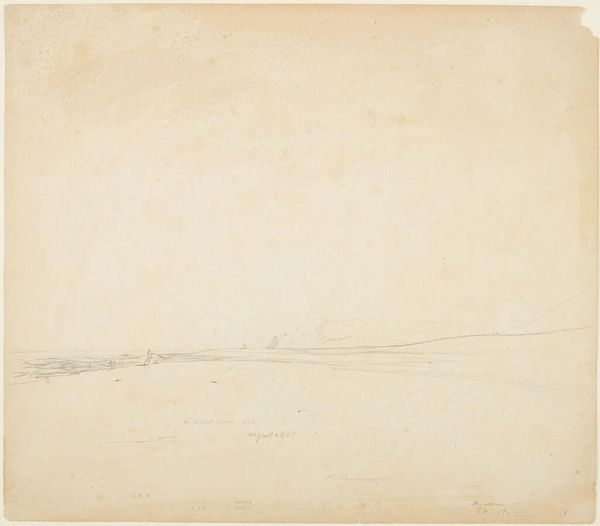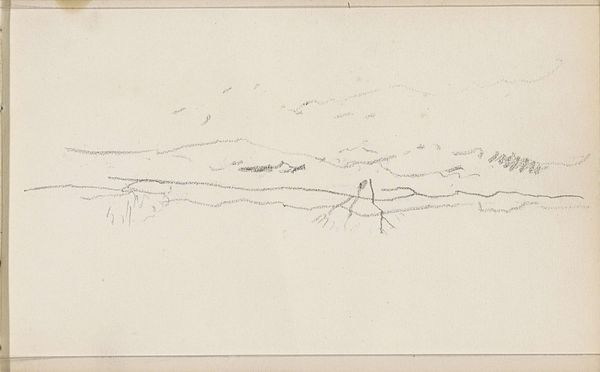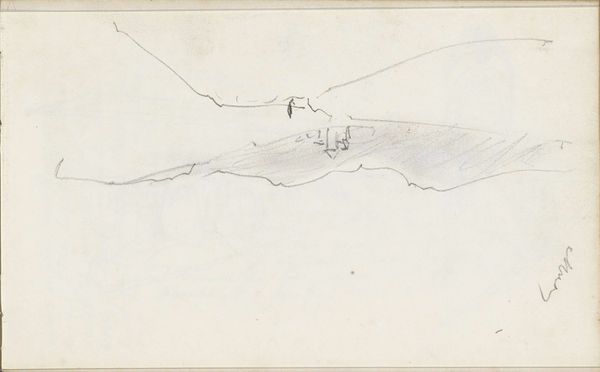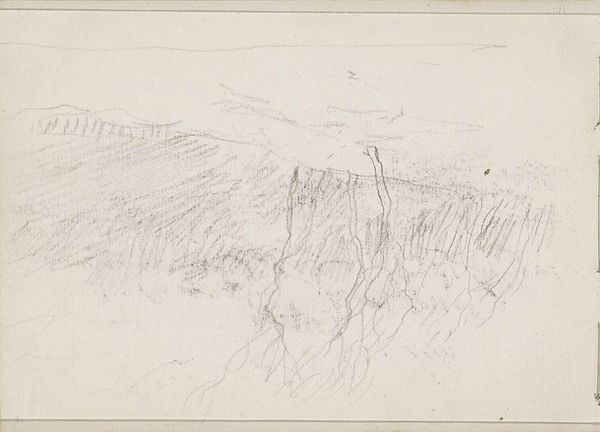
drawing, pencil
#
tree
#
drawing
#
landscape
#
pencil
#
line
Copyright: Rijks Museum: Open Domain
Curator: Up next, we have a look at "Vlak landschap met een rij bomen en een stadsgezicht", which translates to "Flat Landscape with a Row of Trees and a Cityscape." Bramine Hubrecht made it sometime between 1892 and 1913. It's currently held in the collection here at the Rijksmuseum, and it’s a pencil drawing on paper. Editor: Well, my first thought is it has such an ethereal quality. It's like a memory of a landscape rather than a direct depiction. The very limited use of line really invites your eye to fill in the details. Curator: That's a great point. The sketchiness contributes to the dreamlike feel. Hubrecht seems less interested in precise representation and more in capturing a feeling, a fleeting moment. The lone horizontal line that separates the earth from the sky is just so, so striking. Editor: Absolutely. The vast expanse of the blank space—that's really the negative space of the paper itself—above and below that single horizon line becomes the focus. It makes you think about absence, and maybe even the sublime in nature, especially given the backdrop of urban expansion. Were these landscapes disappearing due to industrialization? Curator: Interesting question. It would align with the period, certainly. Looking closer, the mark-making is fascinating—almost frantic in places, particularly around the suggestion of the city skyline. There's this sense of urgency. Editor: Right! And I notice that the composition divides the visual field into registers. The top is this loosely defined band of clouds, the middle is a tight convergence of nature and civilization, and then below is this void. The work has a very sociological aspect. It really gets you pondering how people were responding to the radical landscape changes occurring in that era. Curator: That really connects with what’s powerful for me. Even without knowing the exact context, there’s this visceral sense of loss or tension humming beneath the surface of an otherwise peaceful scene. Almost makes you yearn for the past while realizing how idyllic portrayals like this often miss more complex realities. Editor: Yes, and I think it's important for viewers to contemplate what narratives *aren't* being presented, particularly from Hubrecht's perspective as a woman artist at the time. What does it mean for a woman to be drawing a landscape, when her experience in that landscape will inherently differ from her male counterparts? Curator: Makes you consider not only what Hubrecht intended but also what layers time has added to it, doesn't it? What a wonderful piece to ponder. Editor: Indeed. It's sparked plenty to reflect on today.
Comments
No comments
Be the first to comment and join the conversation on the ultimate creative platform.
